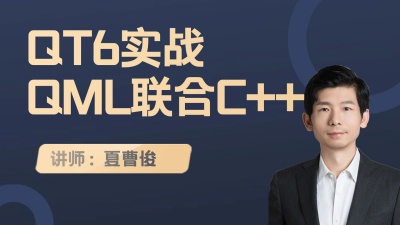std::istreambuf_iterator
来自cppreference.com
| 定义于头文件 <iterator>
|
||
| template< class CharT, class Traits = std::char_traits<CharT> > class istreambuf_iterator : public std::iterator< std::input_iterator_tag, |
(C++17 前) | |
| template< class CharT, class Traits = std::char_traits<CharT> > class istreambuf_iterator; |
(C++17 起) | |
std::istreambuf_iterator 是单趟迭代器,从为之构造迭代器的 std::basic_streambuf 对象读取相继字符。
默认构造的 std::istreambuf_iterator 迭代器被称为流尾迭代器。合法的 std::istreambuf_iterator 抵达底层流结尾时,它变得等于流尾迭代器。解引用或进一步自增它导致未定义行为。
std::istreambuf_iterator 拥有平凡复制构造函数、 constexpr 默认构造函数和平凡析构函数。
成员类型
| 成员类型 | 定义 |
iterator_category
|
std::input_iterator_tag |
value_type
|
CharT |
difference_type
|
Traits::off_type |
pointer
|
/* unspecified, usually CharT* */ |
reference
|
CharT |
char_type
|
CharT
|
traits_type
|
Traits
|
int_type
|
typename traits::int_type |
streambuf_type
|
std::basic_streambuf<CharT, Traits> |
istream_type
|
std::basic_istream<CharT, Traits> |
| /* proxy */ | 实现定义的类类型。名称 proxy 仅为说明。proxy 对象保有一个 char_type 字符和一个 streambuf_type* 指针。以 operator* 解引用 proxy 对象得到存储的字符。
|
|
要求通过从 std::iterator<std::input_iterator_tag, CharT, Traits::off_type, /* unspecified, usually CharT* */, CharT> 继承获得成员类型 |
(C++17 前) |
成员函数
构造新的 istreambuf_iterator (公开成员函数) | |
| (析构函数) (隐式声明) |
析构 istreambuf_iterator (公开成员函数) |
| (C++11 起)(C++17 前) |
获得当前字符的副本 若 CharT 拥有成员,则访问当前字符的成员 (公开成员函数) |
| 推进迭代器 (公开成员函数) | |
测试两个 istreambuf_iterator 是否均为流尾或均合法 (公开成员函数) |
非成员函数
| (C++20 中移除) |
比较两个 istreambuf_iterator (函数模板) |
示例
运行此代码
#include <vector> #include <sstream> #include <iostream> #include <iterator> int main() { // 典型使用:输入流以一对迭代器表示 std::istringstream in("Hello, world"); std::vector<char> v( (std::istreambuf_iterator<char>(in)), std::istreambuf_iterator<char>() ); std::cout << "v has " << v.size() << " bytes. "; v.push_back('\0'); std::cout << "it holds \"" << &v[0] << "\"\n"; // 单趟生态的演示 std::istringstream s("abc"); std::istreambuf_iterator<char> i1(s), i2(s); std::cout << "i1 returns " << *i1 << '\n' << "i2 returns " << *i2 << '\n'; ++i1; std::cout << "after incrementing i1, but not i2\n" << "i1 returns " << *i1 << '\n' << "i2 returns " << *i2 << '\n'; ++i2; // 这使得 *i2 的表观值从 'a' 跳到 'c' std::cout << "after incrementing i2, but not i1\n" << "i1 returns " << *i1 << '\n' << "i2 returns " << *i2 << '\n'; }
输出:
v has 12 bytes. it holds "Hello, world" i1 returns a i2 returns a after incrementing i1, but not i2 i1 returns b i2 returns a after incrementing i2, but not i1 i1 returns b i2 returns c
参阅
| 写入 std::basic_streambuf 的输出迭代器 (类模板) | |
| 从 std::basic_istream 读取的输入迭代器 (类模板) |

